UMERKOT/THATTA: Ameer Ali, a 54-year-old agricultural worker, traveled some 70 kilometers to the southern Pakistani coastal district of Thatta from his native village in Sujawal district in mid-August, when floods washed away his home and the rice crop on the field where he worked. Ali is one of hundreds of thousands of people in Pakistan who have been forced to migrate because of heavy monsoon rains resulting from changing weather patterns.
Monsoon downpours and subsequent floods have caused widespread death and destruction in Pakistan, with more than 1,100 people killed, 33 million affected and large swathes of prime farmland washed away. The southern Sindh province is worst affected, where rains and flash floods have damaged 840,723 houses.
Officials have blamed the devastation on human-driven climate change, saying Pakistan is unfairly bearing the consequences of irresponsible environmental practices elsewhere in the world.
Ali, who has rented a house in Thatta for his 11-member family, says he has migrated at least thrice in the last 35 years as a natural calamity hit the region every decade or so.
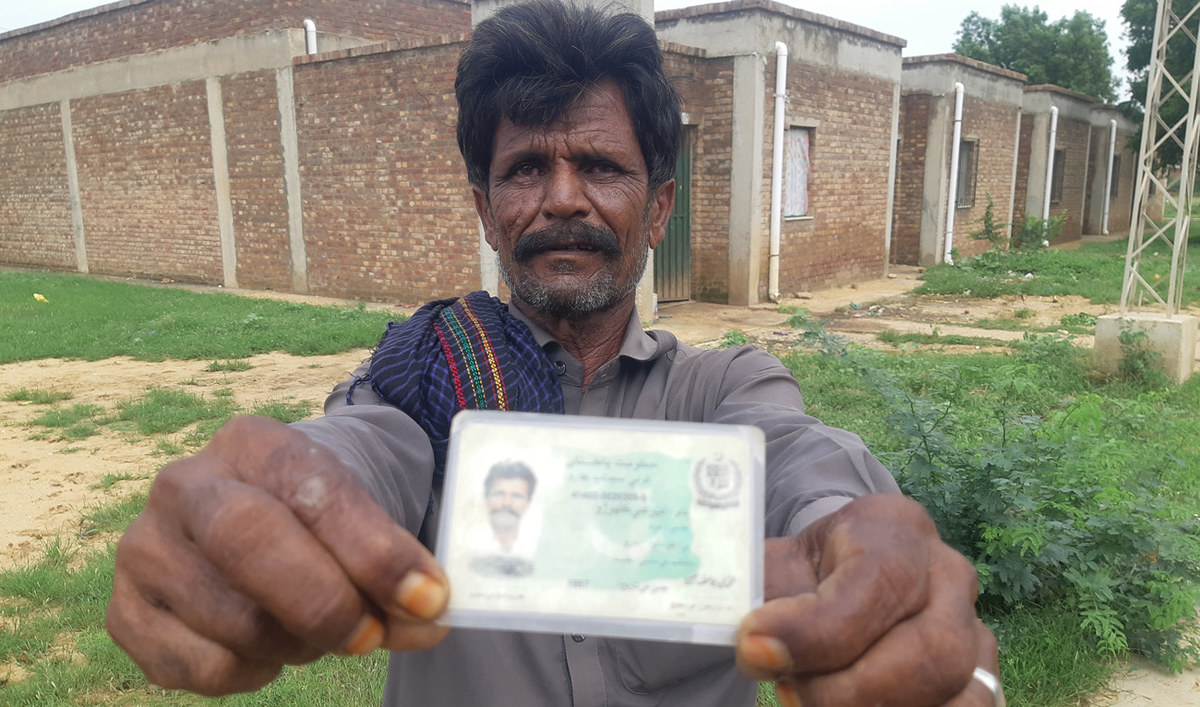
Climate migrant Ameer Ali poses with a computerized national identity card in Thatta, Pakistan on August 27, 2022. (AN Photo/ Zulfiqar Kunbhar)
“I migrated in 1988 because of floods, followed by a cyclone in 1999. I still remember many among us died in the cyclone,” the 54-year-old told Arab News in Thatta on Sunday.
“In 2010, I migrated because of floods.”
Ali says they no longer feel safe because of rains, floods and cyclones hitting the region after every few years. But his problems do not just end here.
“Here in Thatta, my sons and I hardly find any livelihood. So I am worried about paying rent,” he said. “Until the flood water drains out, we cannot return whether it takes two months or three.”
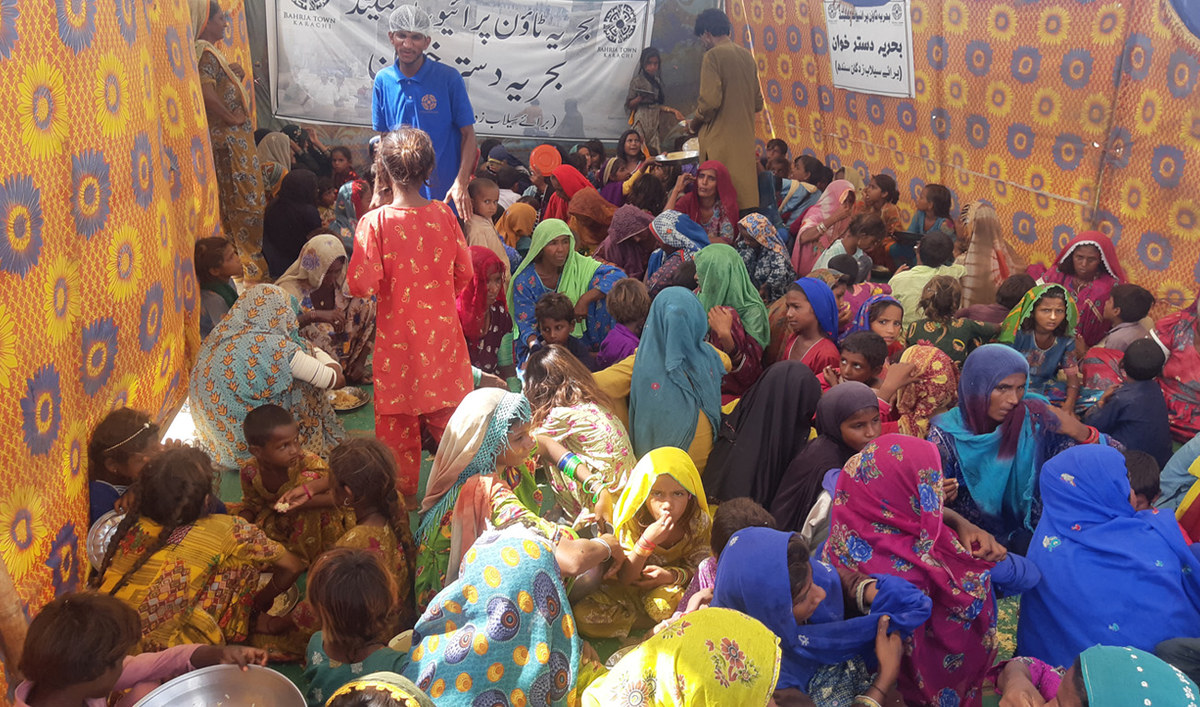
Meals are being served to migrant women in Umerkot, Pakistan on August 28, 2022. (AN Photo/ Zulfiqar Kunbhar)
Sindh’s Umerkot district in the Thar desert region traditionally witnesses migrant outflux in the drought season from March till early-June. Locals migrate with their livestock toward riverine areas of the province along the Indus River. But the ongoing monsoon rains have caused a reverse migration this year and people have been migrating toward the desert from riverine areas.
Sakeena Bibi, 40, also traveled around 40 kilometers along with her family from Bachaband area in Mirpurkhas district to Umerkot. She and her neighbors, mostly agricultural workers, were forced to vacate their area after flash floods destroyed their houses. Like Ali, this meant a loss of her livelihood as well.
“We were drowned. Floods left nothing for us. Only helpless people leave their houses,” Bibi told Arab News in Umerkot.
“I am living in open camps with my adult daughters. Mostly we starve here. Mosquitoes and contaminated water are making us sick, especially children.”
In 2020, more than 18 million people in South Asia were climate migrants who were forced to move to other areas due to slow-onset impacts of sea-level rise, water stress, crop yield reductions, ecosystem loss and drought, according to a report by ActionAid, a Johannesburg-based international organization working on a range of development issues.
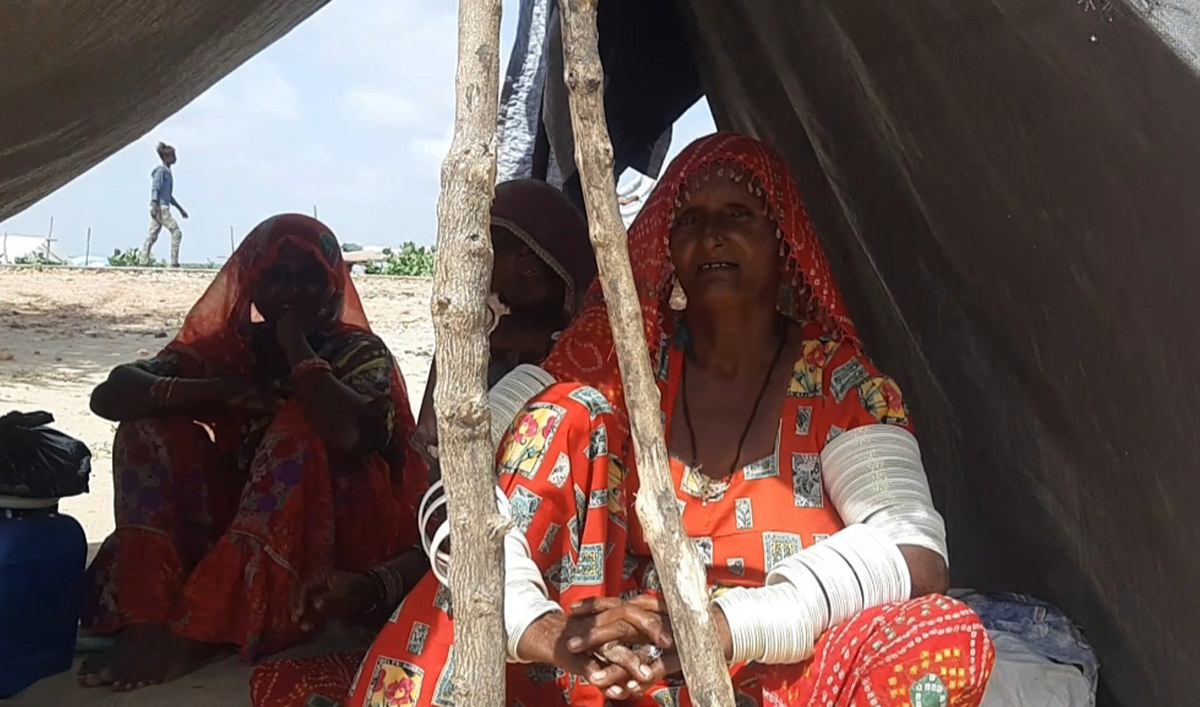
Women pose for a photo inside a tent at a rain migrants’ relief camp in Umerkot, Pakistan on August 28, 2022. (AN Photo/ Zulfiqar Kunbhar)
Pakistan alone is expected to have around 2 million climate migrants by 2050, not including those who would be displaced due to the sudden onset of climate disasters, such as floods and cyclones, the report said.
Experts stress the need for a national rehabilitation plan to address the issue of climate-induced migration.
“In wake of future climate change challenges, climate-induced migration is likely to increase in big cities. With already poor infrastructure, our big cities cannot bear the huge influx of climate migrants. So there is a need to improve infrastructure at the town level,” said Professor Noman Ahmed, dean at the department of architecture and planning at Karachi’s NED University.
“As per estimates, Pakistan’s urban population would increase to 50 percent by 2030 from the existing 36 percent. Fifty-four percent of the country’s urban population lives in 10 big cities. At present there are 550 towns and big cities. In order to stop the inflow of population into these big cities, we need to improve facilities, health, education and livelihood infrastructure in the remaining 540 towns.”
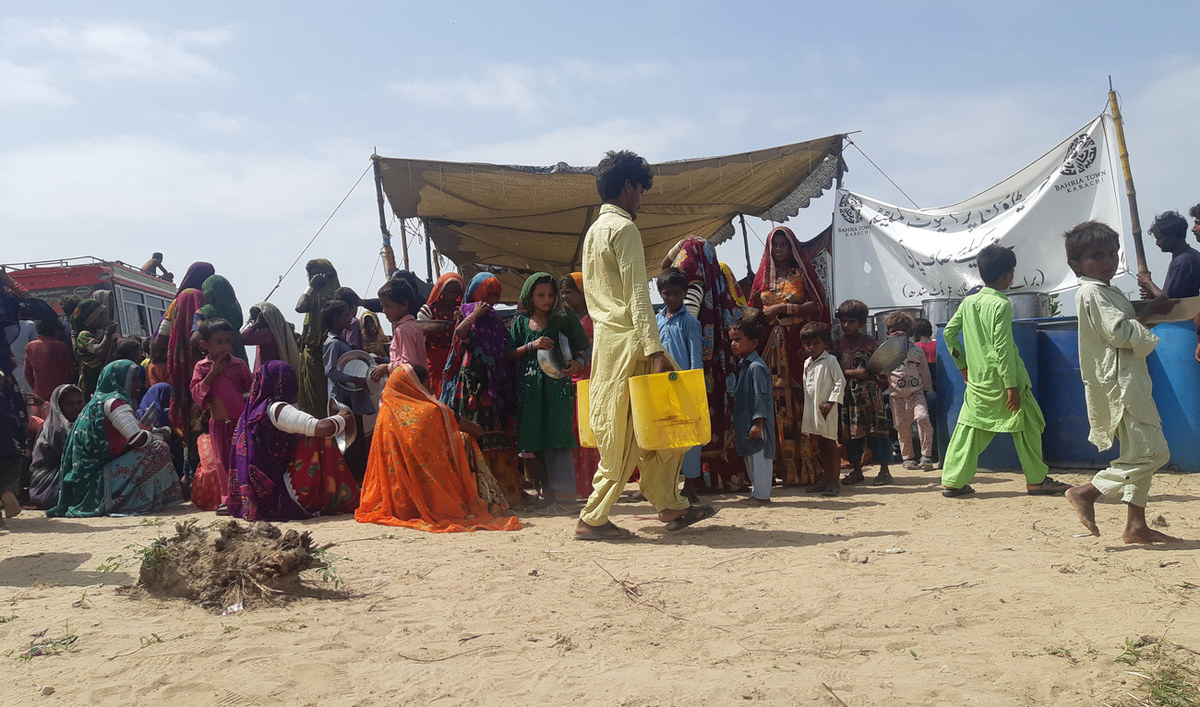
Women form queues for meal at a rain migrants’ relief camp in Umerkot, Pakistan on August 28, 2022. (AN Photo/ Zulfiqar Kunbhar)
For the people uprooted nowadays, he said, it was very important to return to their respective areas and start their life positively when the flood water receded.
Climate-induced displacement and migration influenced the society’s socio-economic dynamics, causing greater inequalities, whereas displaced rural communities in Pakistan were least prepared to cope with floods and droughts, according to a 2020 study by the Islamabad-based Sustainable Development Policy Institute (SDPI) and Climate Action Network South Asia (CANSA), a coalition of over 250 civil society organizations working in eight South Asian countries.
Maryam Shabbir Abbasi, a US-based Pakistani who co-authored the SDPI study, says it is high time for the government to make a national and sub-national level migration policy that would focus on climate-induced migration planning and management.
“The better way to manage climate induced migration is to invest in capacity building of locals. They should be provided with necessary funds to use for mobility during disasters like floods,” Abbasi told Arab News.
“It is important to form an effective approach with institutional support and take adaptive measures if we want to reduce vulnerabilities as well as the number of migrants.”
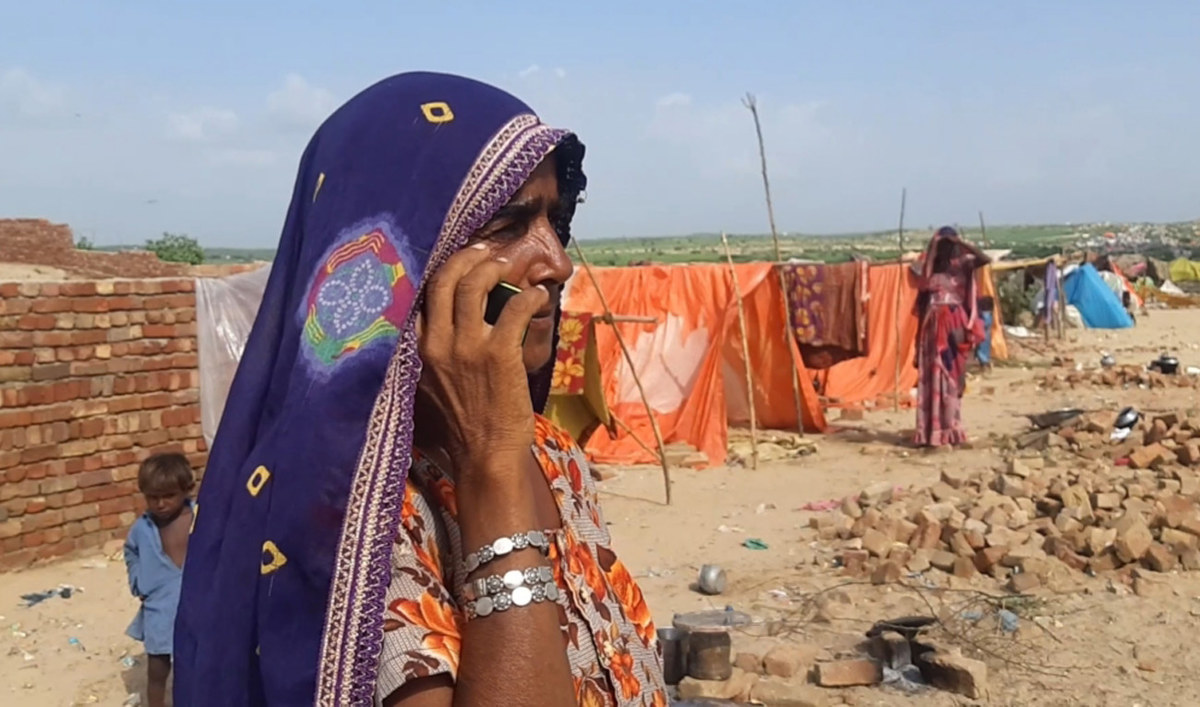
Climate migrant Sakeena Bibi communicates over a mobile phone at a rain migrants’ relief camp in Umerkot, Pakistan on August 28, 2022. (AN Photo/ Zulfiqar Kunbhar)















